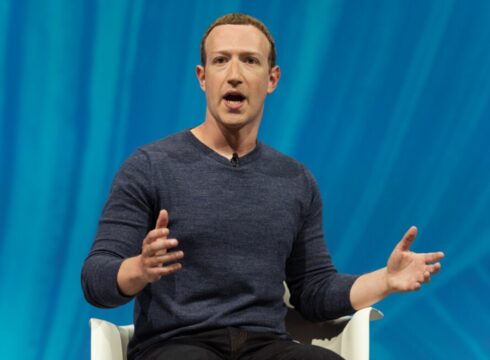Zuckerberg claimed Facebook suspends more than 1 Mn fake accounts daily
Facebook is said to have employed 35K people to review content
Fake news labelling is now integrated across Instagram and Facebook
Inc42 Daily Brief
Stay Ahead With Daily News & Analysis on India’s Tech & Startup Economy
Facebook cofounder and CEO Mark Zuckerberg reiterated the need for regulation of online content according to the role played by each entity. He noted that for social media platforms, the regulations need to be somewhere between the existing rules for the newspaper business and the telecom industry.
“Right now there are two frameworks that I think people have for existing industries – there’s like newspapers and existing media, and then there’s the telco-type model, which is ‘the data just flows through you’, but you’re not going to hold a telco responsible if someone says something harmful on a phone line… I actually think where we should be is somewhere in between,” Zuckerberg reportedly said.
Speaking at the Munich Security Conference in Germany, Zuckerberg highlighted that Facebook has improved “work countering online election interference” and has also made updates on its previous decisions to regulate social media firms. Facebook is said to have employed over 35K people to review online content and implement security measures.
The CEO also noted that Facebook suspends more than 1 Mn fake accounts daily, thanks to an artificial intelligence-powered tool, with the majority being detected within minutes of signing up.
Tackling Fake News: Facebook Trying It All
In December 2019, Facebook made its fake news alert even stronger by taking it to photo and video platform Instagram. With this, any post on Instagram which is suspected to be fake will be labelled as such. Instagram will rely on image matching technology and over 25 third-party fact-checking organisations in 14 countries. Besides that, even users can mark posts as “False Information” through the feedback option.
Instagram’s fake news labelling will also be linked to Facebook, which will automatically label any post across the other social network. The labelled posts will still be visible to the users, but Facebook will ensure that the link to correct news is attached with them.
Besides that, political ads have also been a point of contention between social media platforms, members of civil society and government organisations. Social media platforms like Twitter and Facebook have been accused of accepting any political ads without fact-checking.
Moreover, the stakeholders also believe that social media can easily influence voters, something that came to the fore in Facebook’s Cambridge Analytica scandal of 2018. Twitter decided to give up on most political advertising in November 2019, whereas Facebook has held its ground to keep political ads on board as it has proved to be a good source of revenue.
“There has been much debate in recent months about political advertising online and the different approaches that companies have chosen to take. While Twitter has chosen to block political ads and Google has chosen to limit the targeting of political ads, we are choosing to expand transparency and give more controls to people when it comes to political ads,” Facebook said, in a blog post.
In May 2018, soon after the Cambridge Analytica scandal broke cover, Facebook rolled out Ad Library to make ads more transparent. The public archive allows people to see all ads and campaigns running on Facebook and Instagram pages.
Note: We at Inc42 take our ethics very seriously. More information about it can be found here.


